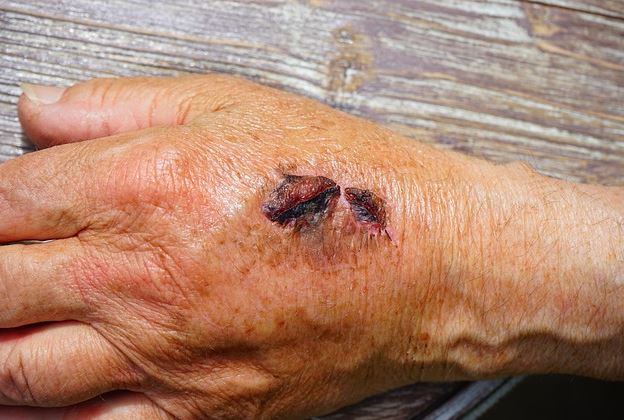Negative Stress Effects
If you’re like most people you’ve experienced a stressful event at some point. Stress is an inescapable, natural part of life. In fact, the surge of adrenaline and cortisol that’s produced by stress can prompt humans to take action in the face of danger. But when stress becomes chronic it can cause a detrimental domino effect.
Below are just a few of the most damaging effects stress can have on a person’s health and ways to keep anxiety under control.
Unsafe Self-Medicating
One of the most troubling aspects of stress is that it can cause people to self-medicate and relieve anxiety in unhealthy ways. Many people report drinking alcohol, smoking cigarettes, binge eating and using illegal substances in an effort to ease tension, but unfortunately it makes matters worse rather than addressing the real problem. Leading drug programs often address sources of stress because they can be the trigger for addiction.

Impaired Cognitive Function
Neuroscientists are just starting to understand how impactful stress is on cognitive function. Many experts now note there’s a link between chronic stress to a higher risk of developing Alzheimer’s.
Stress can also increase depression, which changes the other brain functions. Serotonin, dopamine and norepinephrine production can all get thrown off when a person is experiencing stress. Eventually the hippocampus could be altered and damage brain cells.
Damaged Cardiovascular System
For years doctors have warned that chronic stress can take a toll on your ticker. High levels of stress can lead to high blood pressure and other cardiovascular issues. There’s even a direct connection between long-term stress and heart attacks.
Harvard Medical School has examined how stress affects the cardiovascular system for decades. Their research has revealed cortisol can change white blood cells, causing them to attach to blood vessel walls. This causes plaque to build up and harden arteries.
Packing on Extra Pounds
When people are stressed out it can slow metabolism, promote fat storage and cause fatigue that makes exercise the last thing you want to do. Stress hormones can also add to the problem. They make us have the urge for comfort foods. During bouts of stress, you’re more likely to reach for starches, sugars and fats.
Excess weight can be the catalyst for other health problems such as joint pain, obesity and type 2 diabetes.
Slower Healing
 If you get injured or become ill stress can extend the recovery process. Research examining the health of caregivers has shown individuals who are chronically stressed take longer to heal compared to their less stressed counterparts. The excess cortisol from stress lowers vaccine effectiveness and slows wound healing.
If you get injured or become ill stress can extend the recovery process. Research examining the health of caregivers has shown individuals who are chronically stressed take longer to heal compared to their less stressed counterparts. The excess cortisol from stress lowers vaccine effectiveness and slows wound healing.
Trouble Sleeping
Sleep plays a vital role in our health. During sleep, our bodies go into repair mode and the brain works to reinforce important memories while filtering out the useless information. Lack of sleep can impair our memory, ability to exercise emotional control and create daytime fatigue.
People who experience chronic stress often have trouble sleeping. Increased cortisol levels can cause nighttime wakefulness that makes it difficult to get adequate deep sleep.
Healthy Ways to Deal With Stress
Did you all information stress you out? The good news is there are a number of healthy, effective ways to reduce stress and live healthier.
Massage – In the hands of an experienced practitioner massage can have healing powers. A massage can increase relaxation and decrease muscle tension.
Meditation – Just five minutes of meditation can make a big difference on stress levels. Try squaring away meditation time in the morning so you can put yourself in a positive mindset for the rest of the day.
Tai Chi / Yoga – Tai Chi and yoga are considered forms of mindful meditation. Both aim to relieve stress through a series of poses and focused breathing.
Reading – Studies have shown that reading is one of the quickest ways to reduce stress. The primary reason reading is relaxing is it provides a distraction. It doesn’t matter what you read as long as you get engrossed in the story.
Walking Outdoors – Getting out in nature is one of the latest doctor recommendations for people with anxiety. Recent studies by Stanford University researchers showed that city dwellers showed immediate signs of stress relieve after a hike through a park. Nature walks also help disrupt negative thoughts, which can prevent depression.
















